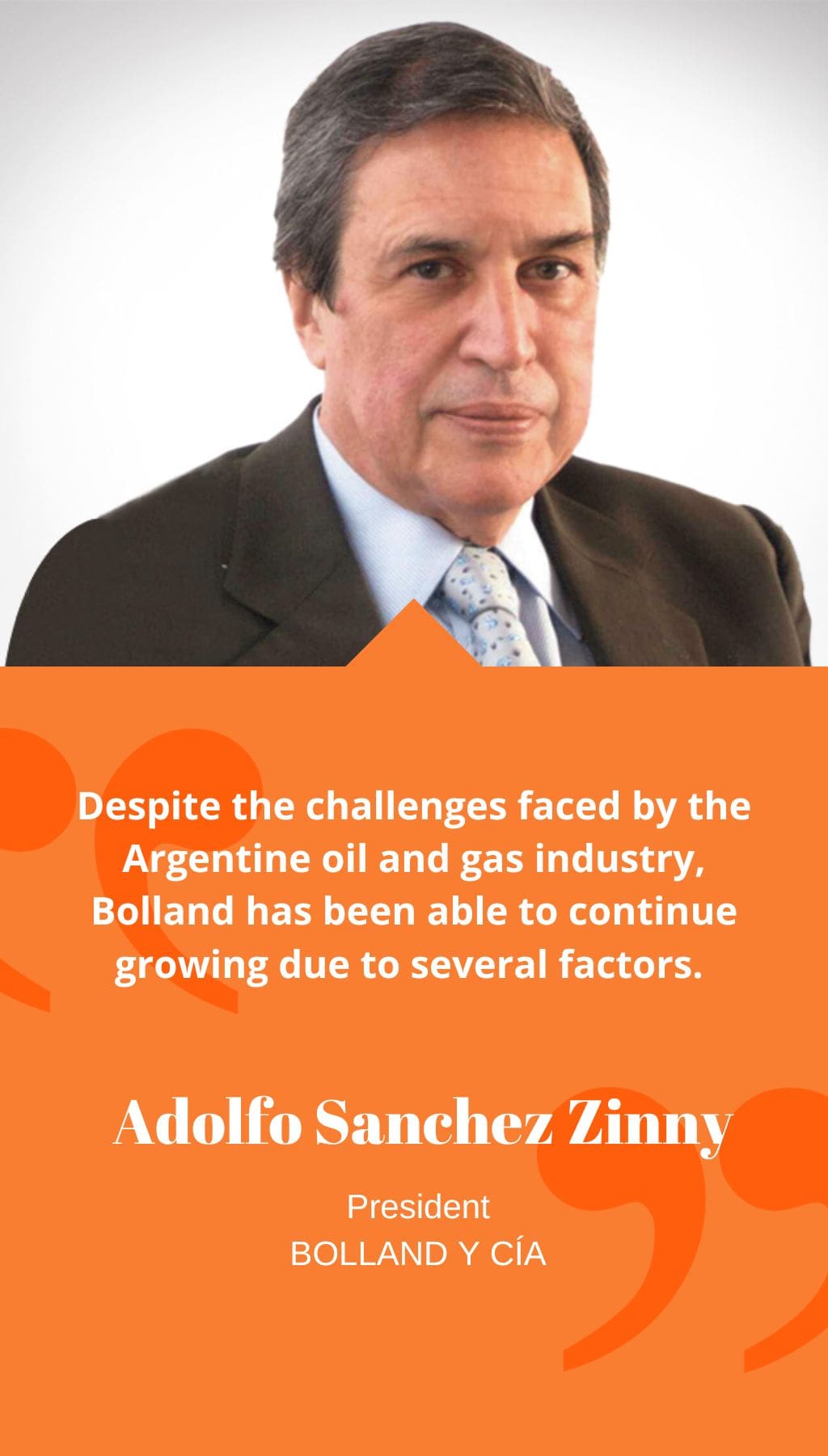
- Argentina | 30 May 2017

Can you explain how Bolland has been able to continue growing in Argentina despite facing critical events like the government debt default in 2014 and decreasing oil production?
Despite the challenges faced by the Argentine oil and gas industry, Bolland has been able to continue growing due to several factors. First, our local oil prices remain profitable at $80 per barrel, and are regulated by the government. Second, Bolland was able to structure its financial needs even after the 2014 default curtailed access to international capital. Finally, Bolland’s shareholders, top managers, and employees are Argentine and possess a wealth of knowledge and experience in the oil industry.
What strengths does Bolland possess that allow it to compete successfully in the Argentine oilfield services market?
Bolland has several strengths that enable it to compete successfully in the Argentine oilfield services market. Firstly, our employees are highly skilled and have an important tenure in the company. Additionally, Bolland has a deep understanding of our customers’ needs and has successfully served the same oil companies for decades. This has led to our customers considering Bolland a reliable oilfield services company that adds value to their projects. Bolland not only provides products and services but also assesses each client’s needs and offers a synergistic package of selected products and services. Lastly, Bolland has achieved leadership in two main business lines: rod pumps and chemical products, with a market share above 50%.
What other business lines has Bolland developed?
Bolland started business in 1937, representing foreign companies in Argentina. We have since expanded to represent top-class oil and gas international companies such as Dresser Rand, Forum Technologies, Cavins, Sivalls, Network International, and XL Systems. Additionally, Bolland offers well-testing services, a line that has grown significantly during the last 10 years, especially in the Neuquén basin. We also build and operate water and oil treatment plants and early production facilities.
What kind of infrastructure services does Bolland provide?
Bolland’s services include the maintenance of pipes and tanks, which is key to keeping low costs and preserving Argentina’s oil infrastructure in adequate conditions. Some companies still underestimate the importance of maintaining their infrastructure in good condition and pay the consequences in the resulting costs associated with the need to overhaul and even replace equipment.
How does Bolland plan to take full advantage of Argentina’s conventional and unconventional hydrocarbon resources?
Bolland is developing the know-how and technology to solve both conventional and unconventional needs. For conventional operations, Bolland is working with major oil companies to study new technologies that can increase oil recovery and improve efficiency. For unconventional operations, Bolland is contributing to fostering competitive costs by developing new chemical products, water treatment plants, and early production facilities, among other activities.
How important is it for Bolland to partner with international exploration and production (E&P) and other oilfield service (OFS) companies?
Bolland’s main strategic goal is to work with its customers to help them meet their requirements and results. This means developing new service models and offerings, product and technology innovation where needed, and knowledge management. Bolland is open to entering into joint ventures with third parties whose experience complements its expertise. This kind of cooperation is particularly important at a time when E&P companies are seeking to reduce costs due to low international oil prices. To that effect, E&P and OFS companies must also work together to reduce costs in a way that generates a win-win approach for both.














